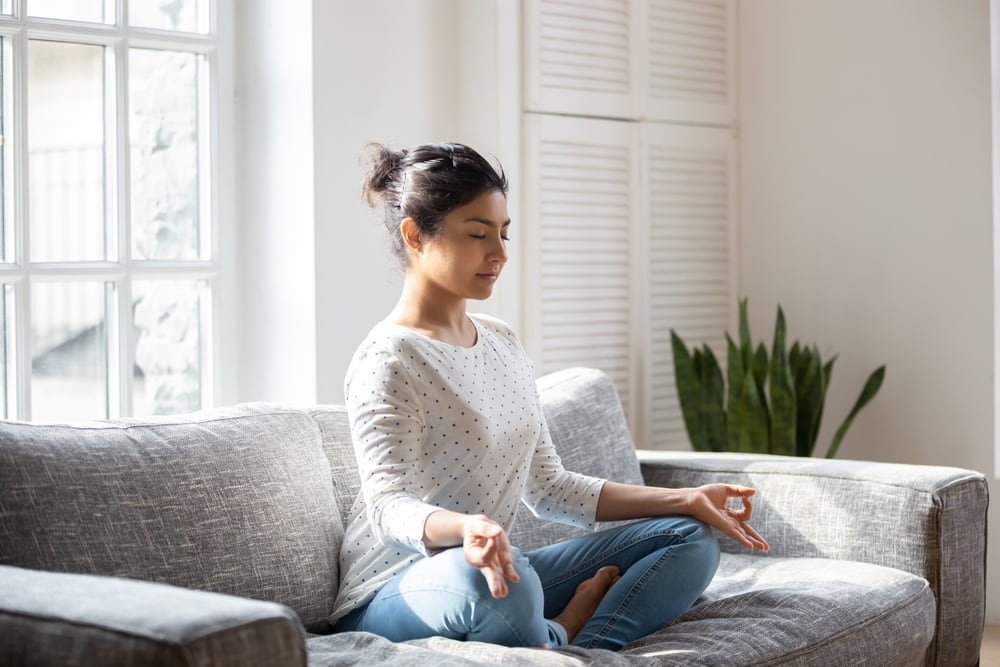The role of yoga in improving mental wellness


A report by Harvard Medical School states,
“Yoga increases’ feel good’ neurotransmitters like serotonin and GABA in the brain, which play a role in reducing depression and anxiety.”
In the present era, stress, anxiety, and worry have become an integral part of our daily lives. People are getting mentally exhausted daily due to the pressure of work, family responsibilities, and social competition. In this situation, yoga is gaining importance as an exercise and an effective means of regaining mental peace and balance. Through yoga, a deep connection is established between the mind, body, and soul, which gives a new dimension to mental well-being. Studies have shown that regular yoga helps reduce stress, improve sleep quality, improve attention, and increase self-confidence. Therefore, yoga is not just an option today but a necessary way of life to maintain mental well-being.
Reducing Stress


Stress has become a common problem in modern life, affecting our performance, sleep, and mental peace. Yoga is a proven and effective way to reduce this stress. Yoga’s controlled breathing exercises, meditation, and slow-paced asanas calm the nervous system and reduce the level of the stress hormone cortisol. Regular yoga practice creates a balance between the body and mind, reducing stress response. In particular, Shavasana, Balasana, and Sukasana help increase mental peace. Studies have shown that just 20 minutes of yoga daily can reduce stress and calm the mind. Therefore, adding yoga to your daily routine is a simple but powerful step to reduce stress and maintain mental well-being.
Reduce Anxiety and Worry


Worry and worry make our minds busy, restless, and negative. If it is prolonged, it can cause sleep disturbances, lack of confidence, and mental illness. Yoga is a practice that helps calm the mind and reduce the burden of thoughts. Meditation, pranayama, and slow yoga asanas help focus attention on the present moment. It increases mindfulness, one of the most effective ways to reduce anxiety. Studies have shown that regular yoga reduces nervous system tension and puts the body in’ relaxation mode’ instead of the ‘fight-or-flight’ response. Shavasana, Vajrasana, and Padmasana are especially effective in relieving anxiety. Therefore, yoga can be an easy and natural solution for those who suffer from anxiety.
Improves sleep quality


If sleep is poor, both physical and mental health are affected. Insomnia, frequent waking up in the middle of the night, and waking up restlessly in the morning are common symptoms of sleep problems. Yoga can be a natural and effective solution to these problems. Slow-paced yoga poses, breathing control (pranayama), and meditation calm the brain and the nervous system, which is very important for falling asleep. Studies have shown that regular yoga improves the duration and quality of sleep.
Shavasana, Yoga Nidra, and Mindful Meditation are especially effective in reducing insomnia. Practicing yoga for just 10-15 minutes before going to bed at night calms the mind and relaxes the body, and sleep comes naturally. Therefore, yoga can be a simple, reliable, and drug-free solution to improving sleep quality.
Developing Confidence and Attitude


Self-confidence and a positive attitude are the foundation of our personality, decision-making ability, and ability to build relationships. However, mental stress, failure, or self-criticism can often reduce confidence. Yoga can play an essential role in this. Yoga connects the body and mind, allowing us to know ourselves better. By practicing yoga every day, we develop self-control and discipline, which helps increase confidence. Through yoga, we can feel the inner strength and stability of the body, which creates self-esteem and self-love.
Meditation strengthens and stabilizes the mind, especially Bhrikasana and Virbhadrasana. Regular practice makes the attitude more positive, patient, and grateful. As a result, the outlook on life changes, and self-confidence and mental health improve together.
Increase concentration and memory


Maintaining attention and remembering information is a big challenge for many in today’s fast-paced life. Regular yoga practice can play an essential role in increasing concentration and memory. Yoga increases blood flow to the brain, improving neurons’ functioning and keeping the brain more active and alert. Meditation, pranayama, and specific yoga asanas such as Padmasana, Child’s Asana, and Vajrasana calm the mind and increase attention. Studies have shown that regular yoga improves cognitive functions, such as decision-making, the ability to analyze, and the ability to remember.
Yoga relieves mental fatigue and gives the brain a rest, so the mind does not get distracted quickly, and the ability to learn increases. Therefore, students, office workers, or anyone can practice yoga to improve memory and attention.
Helps with Depression and Mental Illness


Depression is not just a feeling of sadness; it is a complex mental disorder that can severely affect performance, relationships, and quality of life. Studies have shown that regular yoga practice can help reduce symptoms of depression and other mental illnesses. Yoga helps increase levels of the “feel good” hormones serotonin, dopamine, and GABA in the brain, which play a role in improving mood. Meditation, controlled breathing, and slow-paced asanas calm the nervous system and reduce negative thoughts.
Yoga Nidra, pranayama, and meditation are especially effective in managing depression. Although taking a doctor’s advice is essential, yoga can be an adjunct therapy. It can be a natural, safe, and beneficial way to achieve mental peace in addition to medication.
Putting It All Together
Yoga is a natural, simple, and effective method for maintaining mental well-being. It is a physical exercise and a way to connect with the mind and soul. Regular yoga reduces stress and anxiety, improves sleep quality, and increases focus and confidence. Meditation and pranayama calm the mind and increase the secretion of positive hormones in the brain, which helps deal with depression or anxiety. Research also proves that yoga can play an essential role as an adjunct treatment for mental illness. Just 20-30 minutes of yoga daily can help achieve mental peace, stability, and self-satisfaction. Therefore, yoga can be your trusted daily companion to build a healthy, vibrant, and mentally balanced life.










2 Comments
Great read! Stress is such a universal issue, and it’s refreshing to see it addressed so directly. I appreciate how CoreWellFit emphasizes the importance of mental health alongside physical health—it’s a reminder we all need. The actionable advice and resources you provide seem really practical, but I’m curious, how do you suggest someone start if they feel completely overwhelmed? Also, do you have any specific tips for balancing work and wellness without burning out? I’d love to hear more about your approach to integrating these practices into daily life. What’s one small step you’d recommend for someone just starting their wellness journey?
This is such an insightful read! Stress is indeed a universal challenge, and it’s great to see CoreWellFit tackling it head-on. I love how the blog emphasizes the connection between mental and physical health—it’s a crucial reminder we all need. The practical advice and resources mentioned seem really helpful, but I’m curious, how do you suggest someone start if they feel completely overwhelmed? Also, do you have any specific tips for balancing work and wellness without burning out? I’d love to hear more about your approach to integrating these practices into daily life. What’s one small step you’d recommend for someone just starting their wellness journey?
We’ve integrated libersave into our regional voucher system. It’s amazing how easily it brings together various providers on one platform!